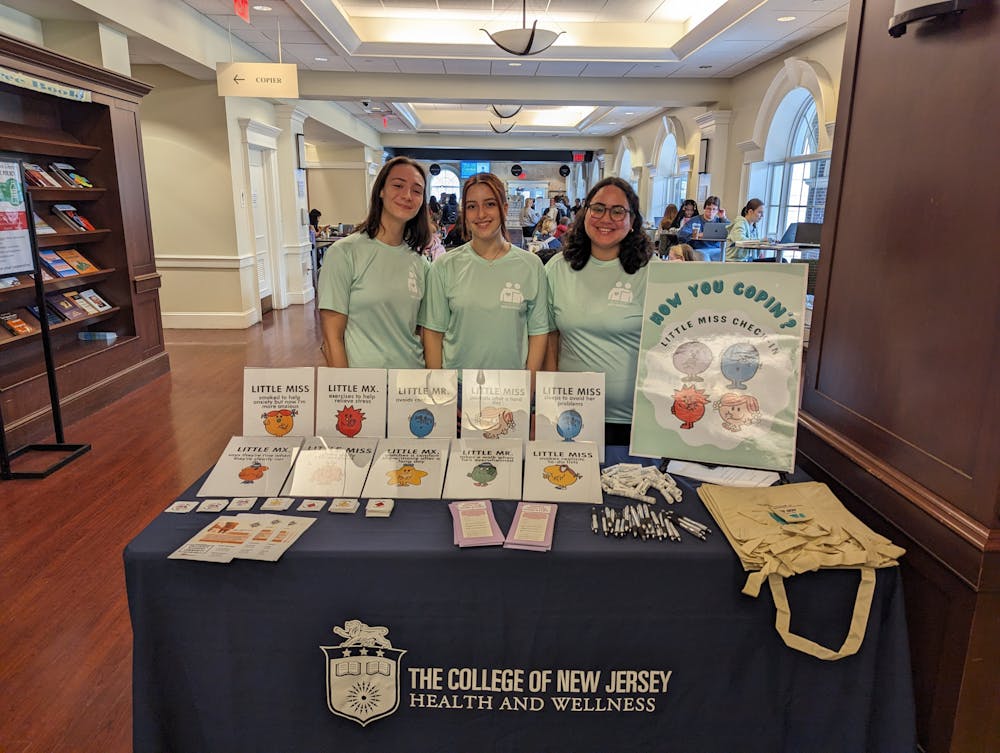By Asaka Park
Correspondent
Thinking critically about cannabis can be daunting when friends, family, teachers and the law all have different stances on this common drug. Leading with the principle of harm reduction, the College’s Alcohol and Other Drugs Services (AODS) tries to help students make informed decisions. Throughout the month of April, the office will be observing Cannabis Awareness Month with a campaign shedding light on cannabis safety.
“We're going to be doing one event that we're all particularly excited for. It's called Brownies for 4/20, where we're giving out brownies on 4/20 and basically talking to people about healthy consumption and stuff like that,” said peer educator Emily Riotto-Alejandro, a sophomore psychology major.
AODS will also be holding a “bake” sale at the Thrive Wellness Expo on April 11th to speak to students about their relationship with marijuana.
Through these lighthearted activities, Riotto-Alejandro hopes to promote safe cannabis practices, while also “creating space for those who don't use it.”
This April will mark the first Cannabis Awareness Month since cannabis has been legalized in New Jersey. Though the College prohibits its students from possessing, using and distributing cannabis, it is fairly common to catch a whiff of weed during an evening stroll around campus.
On Feb. 9, an email was sent to New Residence Hall students reminding them that cannabis use is prohibited in residence halls, adding that consequences for possession in a residence hall may include having “an emergency contact called to remove the cannabis from campus.”
A division of Student Health Services, AODS’s role is to mitigate the risks associated with substance use.
“We realize people were using [cannabis] when it wasn't legal,” said Eric Van Eck, the recovery and prevention coordinator, “…and people will continue to use now that it is legal, and maybe a few more will because it is legal and there are no criminal charges.”
Cannabis is very popular amongst college students. There are over 700 species (or “strains”) of the plant. Leaves, stems or buds may be smoked, steamed or ingested. It may be consumed via food (i.e, brownies) or alongside alcohol (“cross-fading”). Cannabis could be used — or misused — in a variety of ways, but Van Eck and colleagues are looking to “get general information out about cheaper overall cannabis use and the unregulated stuff.”
As with nicotine, many students erroneously believe that vaping cannabis is safer than smoking. Although e-vapes are popular among students because they are more discreet, they are not completely harmless. “More research is happening to really solidify some recommendations around that,” commented Van Eck.
Another area that AODS is keeping an eye on is synthetic cannabinoids. The term encompasses a range of un-regulated, non-standardized chemical cocktails that mimics the effects of THC — the compound primarily responsible for the “high” feeling. In other words, synthetic cannabinoids serve as substitutes, rather than carbon copies, of the substance found in cannabis.
“It has different effects on your brain,” said Gianna Anselmo, another peer educator working on the campaign.
Delta-8 in particular has “really scary side effects that people just aren't aware of,” said Anselmo, a junior psychology major. Delta-8 is a lab-made derivative of Delta-9 (a form of THC found abundantly in weed). Though some claim that Delta-8 is gentler than Delta-9, the substance has not been proven safe in the high concentrations seen in synthetic cannabinoid products. According to the FDA, manufacturers may also use toxic chemicals to increase efficiency.
Delta-8 products have been linked to numerous ER visits and hospitalizations. Citing instances of previously healthy individuals developing irreversible psychosis after use, Anselmo and Van Eck both urged students to exercise great caution with Delta-8, especially if they have a pre-existing mental illness.
These risks are worth discussing, but shaming and scaring students isn’t the way to go, said Van Eck, noting that “[AODS] subscribe to the fact that the campaigns centered around ‘just saying no’ are ineffective.”
“There's a lot of complex reasons why people choose to use, and there's a lot of reasons why people choose not to use, so we want to honor that,” he explained. He also acknowledged that “not everybody that uses cannabis is using in a way that is harmful or impactful to their lives or to the others around them.”
AODS is not here to enforce compliance; rather, their primary role is to support students in their individual pursuits of wellness. By spreading information and sharing tools to cope with challenges without substance, Van Eck hopes to encourage rather than discourage the choice of consumption.
While students may be referred to AODS by Student Conduct, the program offers confidential, personalized care to any student struggling with substance use. Regardless of the particulars, said Van Eck, “it's all about healing and addressing trauma.”
It is through this holistic lens that Van Eck and his team examine marijuana use on campus. Regardless of what the newest headlines say, Van Eck is confident AODS will equip students with transferable skills that could reduce adverse outcomes in a variety of contexts. “Our approach remains our approach,” said Van Eck.
“Telling people, ‘don't do that; that's bad’ isn't going to work,” echoed Riotto-Alejandro. “But if we can give them actual usable tips and things that they can do to be healthy, and avoid harm, then that's what we're all about.”







